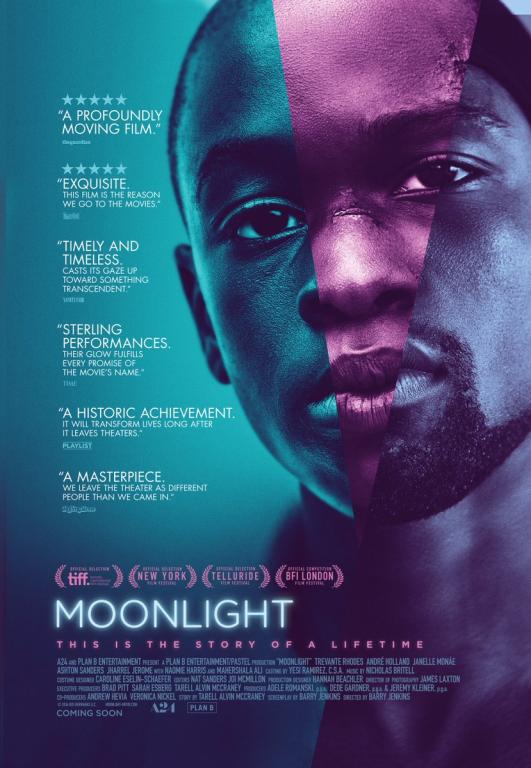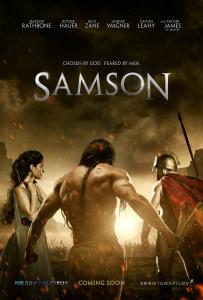 I am an Evangelical pastor who is conservative theologically, believing the historic orthodox doctrines of Christianity, including the inerrancy of Scripture, the unique sufficiency of Christ, and the establishment of marriage as between one man and one woman. And I’m also excited that Moonlight won Best Picture at the Academy Awards just a few weeks ago.
I am an Evangelical pastor who is conservative theologically, believing the historic orthodox doctrines of Christianity, including the inerrancy of Scripture, the unique sufficiency of Christ, and the establishment of marriage as between one man and one woman. And I’m also excited that Moonlight won Best Picture at the Academy Awards just a few weeks ago.
How is that possible? How can a conservative preacher be excited about a movie that is, as one of my friends recently described it, “A black, gay, coming-of-age story”?
Well, probably the first thing I need to explain/defend is my fascination with movies. In short, I believe that movies, while certainly being entertainment, are also art and windows into the human condition. Since God is the great Artist who has called us to also be creators and artists, Christians, of all people, should care about art. Unfortunately, many Christians don’t care about art, they only care about truth proclamations, which is why we get so many one-dimensional Christian movies. Of course, there is something superficial about awards shows, and it’s fundamentally weird to rank art like it’s a competition. Nevertheless, the Oscars influence what gets made in the future, so anyone that cares about movies should at least be interested in what the Academy does.
The second thing I might need to explain, though I wish I didn’t, is my concern for diversity. Some of my conservative friends bristle at the notion of diversity, seeing in it a cloak for liberalism, political correctness, and possibly an antichristian one-world government. But, the Bible is a book that presents diversity as a good thing. It is a book written over thousands of years by a diversity of writers of different backgrounds and social classes, in different languages, with its ultimate vision of redeemed humanity being “every tribe and language and people and nation” reigning with God on earth (Revelation 5:9-10). God created all people and calls us to love all people, and we can’t love people if we don’t make attempts to understand them. Movies are stories that help me understand other people, as they allow me to walk a mile in the shoes of people who are sometimes radically different from me.
The third thing I probably need to explain/defend is the sexuality part of Moonlight. But, here’s the thing- Moonlight is not about sex, at least not any more than we could say that Titanic was about sex (in fact, sex plays much less of a role in the former than the latter; and, as with any piece I write about movies, don’t take it as a blanket recommendation for everyone, you are responsible to research content and determine if it’s appropriate for you). There is sexual contact between two men, but it never plays as an apologetic for homosexuality. It is a story about a black man growing up in Miami, with the poverty, social alienation, and parental neglect that regularly come along with that. What this young man wants is not necessarily sex, but acceptance. It is about the overwhelming need of the human heart to be loved. I don’t need to approve of every single action that the hero takes in a movie to appreciate the movie, and Moonlight doesn’t demand my blanket approval, it simply asks me to observe and think. And what I observe through the eyes of this film is that there are teenagers who have never really been shown love and are vulnerable to any display of affection by someone who cares. It makes me empathize with kids growing up in poverty whose parents are addicts and don’t protect them.
So, given those preliminary explanations, let me go on to explain why Moonlight winning Best Picture makes me so happy. First, it is an artistically beautiful film. The writing, acting, and cinematography are all top-notch. And it’s extraordinary because it is an independently made film, with a miniscule $5 million dollar budget (by comparison, Captain America: Civil War cost $250 millon), that has no superheroes or franchise connections, which means it had a hard time getting made. And if that helps other independent films get made, that’s good for movies and good for me, as independent films tend to be my favorites.
The fact that Moonlight won Best Picture is an encouraging sign for diversity in America and in the film industry. Directed by a black man, with no white actors in the film, such a film probably couldn’t have gotten made 10 years ago, much less won an Oscar. This is encouraging progress, not for liberals and progressives, but for humanity. We need to see and hear stories of black people, brown people, white people, Asian people, African people, Middle Eastern people, happy people, sad people, sick people, and crazy people. God cares about every one of them, and so should we. The artist does not look away from observing any of those people, and Christians should be open to learning from all of their stories.
One of the best things about Moonlight is its honesty. Yes, I know it’s a fiction film. But a film doesn’t have to be a true story to be truthful. I like a lot of different kinds of films from different genres, but at core, they need to be truthful- they need to tell me the truth about the world and about the human condition. And Moonlight tells the truth. It doesn’t sugar-coat life and it doesn’t give a quick happy resolution to make everyone feel better leaving the theater.
Moonlight wasn’t my favorite film of last year (Fences was), but it was a worthy candidate for Best Picture, and I am glad it won. It’s not the kind of movie that, in the past, was said to be “Oscar bait,” what the Academy usually rewards, which is why I wasn’t surprised when La La Land appeared to have won Best Picture. But, I hope, now that the dust has settled on Envelopegate, that Moonlight will be properly appreciated and help usher in a new era of small, powerful, diverse art films getting their due.













